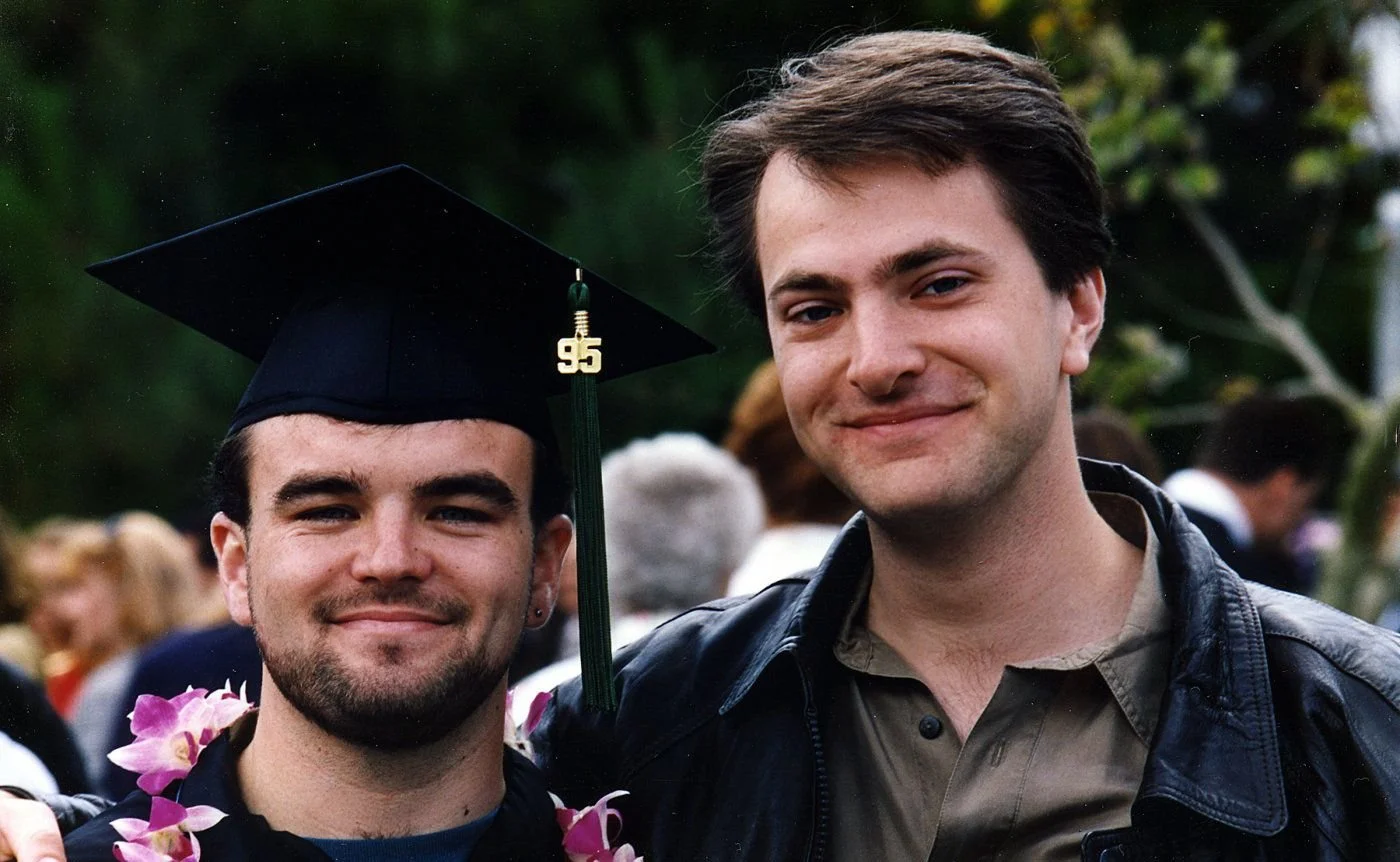Dear Zachary (2008) Review
A Heartbreaking True Crime Tale
"Dear Zachary: A Letter to a Son About His Father" is a heart-wrenching and powerful documentary that tells the tragic story of Dr. Andrew Bagby, a young man who was brutally murdered by his ex-girlfriend. Directed by Kurt Kuenne, the film delves into the complex aftermath of the crime, as Kuenne shares intimate interviews with family and friends to memorialize Bagby's life and examine the inadequacies of the justice system, which ultimately culminates in an even graver tragedy.
As the title suggests, the documentary is framed as a letter to Bagby's infant son, Zachary, serving as a tribute to the father he never had the chance to know. Kuenne's storytelling is interwoven with a compelling and harrowing narrative that emphasizes the emotional impact of the events on those left behind. Throughout the film, viewers witness not only a deep sense of loss, but also the fortitude and resilience of the human spirit.
Through Kuenne's lens, "Dear Zachary" masterfully transcends the conventions of traditional documentaries, offering a unique perspective on a story that highlights the importance of justice, family, and love. The film's deeply personal approach has resonated with audiences worldwide, garnering critical acclaim and becoming a poignant reminder of the power and significance of documentary storytelling.
Director's Background
Kurt Kuenne, the director of the highly praised and emotional documentary Dear Zachary: A Letter to a Son About His Father, is an American filmmaker, known primarily for his work in documentaries and short films. Born on November 1, 1973, in Santa Clara County, California, Kuenne displayed an early skill and passion for filmmaking.
Throughout his career, Kuenne has directed a wide range of projects, including feature films, documentaries, short films, and even a television series. He started his filmmaking journey by creating short films in high school and continued to develop his talents at the University of Southern California's School of Cinematic Arts. Some of his most notable works in the short film category include Remembrances (1995), String Theory (1996), and Rent-a-Person (2002).
In 2000, Kuenne made his feature film directorial debut with Scrapbook, a drama that was well received on the festival circuit. This experience provided him with valuable insight and further shaped his understanding of the filmmaking process. However, it was with Dear Zachary (2008), a documentary film about his close friend Dr. Andrew Bagby's life and death, that Kuenne received widespread recognition and acclaim.
Kurt Kuenne's dedication to storytelling, driven by his empathy for the subjects of his documentaries, has contributed to the powerful impact of his work. His approach to filmmaking is characterized by a combination of honesty and sensitivity, making him an esteemed figure within the world of documentaries. While his body of work continues to grow and evolve, the impact of his films lingers with audiences, proving Kuenne's extraordinary skill in creating deeply moving narratives.
Film Synopsis
Dear Zachary: A Letter to a Son About His Father is a heartfelt documentary that tells the tragic story of Dr. Andrew Bagby, a promising young physician who was brutally murdered by his ex-girlfriend, Dr. Shirley Jane Turner. The film is directed and narrated by Bagby's close friend, Kurt Kuenne, who sets out on a journey to create a tribute to his late friend's life and a lasting video memory for his son, Zachary.
As Kuenne interviews family members and friends of Andrew, we learn about his warm and nurturing nature, his love for life, and his dedication to his medical career. The documentary also delves into the relationship between Andrew and Shirley, examining its red flags, tumultuous nature, and eventual violent ending.
In a tragic turn of events, after Andrew's murder, Shirley reveals that she is pregnant with his child. This sends Andrew's parents, David and Kathleen Bagby, on a tiresome crusade to gain custody of their grandson Zachary and bring Shirley to justice. Throughout the film, we witness the heart-wrenching struggle and determination of the grandparents as they navigate the complex legal system in both the United States and Canada.
Dear Zachary is not only a narrative of Andrew's life and his parents' fight for justice, but it also serves as a critique of the legal systems in both countries. The documentary highlights the failures in protecting victims of domestic violence and properly dealing with potentially dangerous individuals, such as Shirley Turner.
The film's emotional depth, powerful interviews, and gripping storytelling make Dear Zachary a compelling and unforgettable documentary that will leave viewers deeply moved by the story of Andrew Bagby and his family, while also shining a light on the legal system's shortcomings.
Critical Reception
Audience Response
Dear Zachary has garnered an overwhelmingly positive response from audiences. Viewers praised the documentary for its emotional depth and compelling storytelling. Many expressed that the film touched their hearts and left a lasting impact on them, making it a memorable piece of documentary filmmaking.
Reviews
Critics also shared positive views about Dear Zachary. They applauded the film for its raw portrayal of anguish and grief, stemming from the true story it depicts. They commended the director for tackling such a difficult subject with grace and sensitivity, crafting an intense and captivating narrative.
Some reviewers pointed out that the documentary's editing style, while unconventional at times, effectively contributed to the overall emotional tone and storytelling. However, a few critics felt that the editing choices occasionally detracted from the story's coherence, causing minor distractions.
In summary, Dear Zachary has received high acclaim from both audiences and critics, with its powerful storytelling and deep emotional resonance earning praise. The unconventional editing style received mixed reviews, but ultimately, the documentary's strengths seem to outweigh any minor imperfections.
Impact on Society
Dear Zachary, a documentary directed by Kurt Kuenne, has had a significant impact on society, particularly in the areas of legal reform, awareness of domestic violence, and emotional resilience. The film's emotional depth and powerful storytelling have inspired viewers and led to changes in both policy and people's lives.
The most immediate impact of the documentary was its role in advocating for legal reform in Canada regarding child custody and parental rights. The film highlights the tragic consequences of allowing someone with a violent past access to their children, as occurred in the case of Andrew Bagby's murderer. This sparked a demand for changes in the legal system, ultimately leading to the implementation of "Zachary's Law" in 2010. This legislation aims to protect children from potentially dangerous situations by allowing judges to consider a parent's criminal history and the risk they may pose to their child when determining custody arrangements.
In addition to legal reform, Dear Zachary has raised awareness of domestic violence and the dangers faced by those who are involved in abusive relationships. By telling Andrew Bagby's story and depicting the devastating impact of his murder on his loved ones, the film has brought attention to the broader issue of intimate partner violence and the importance of providing support to victims. It has served as a reminder that even seemingly stable relationships can harbor dark secrets and that society must remain vigilant in identifying and addressing cases of abuse.
Furthermore, the documentary demonstrates the incredible emotional resilience of Andrew Bagby's family, who persevered through unimaginable tragedy to ensure their son's story was not forgotten. The film's depiction of their journey serves as a powerful reminder of the strength of human spirit and the importance of community support in times of crisis. Many viewers have reported feeling inspired by the example set by the Bagbys, using their story as a catalyst for positive change in their own lives.
In summary, the documentary Dear Zachary has had a profound impact on society by contributing to legal reform, raising awareness of domestic violence, and demonstrating the power of emotional resilience. Its influence continues to be felt through ongoing discussions, advocacy, and the positive changes it has inspired in the lives of viewers.
Film Techniques Used
Dear Zachary: A Letter to a Son About His Father utilizes various film techniques to create an emotional and impactful documentary. Notable among these are the use of interviews, found footage, and editing.
The documentary heavily relies on interviews with the family and friends of Andrew Bagby, the father whom the film is dedicated to. These interviews provide valuable personal insights, creating strong empathy for the viewers. The interviews also serve to cement the protagonist's character and help convey his true nature.
Found footage plays a significant role in the film, as the director, Kurt Kuenne, was a close friend of Andrew Bagby and had access to home videos from various stages of Andrew's life. This usage of found footage not only immerses viewers in the narrative but also establishes the timeline and events of the story more effectively.
The editing in Dear Zachary is executed seamlessly, allowing for smooth transitions between interviews and found footage. The pacing of the film is also carefully considered, as the film unravels the story at a consistent rhythm, keeping the audience engaged throughout. Additionally, the editing enhances the emotional impact of the film by juxtaposing somber moments with lighthearted ones.
In summary, Dear Zachary employs several film techniques like interviews, found footage, and editing to create an engaging and emotionally resonant documentary.
Film's Legacy
Dear Zachary: A Letter to a Son About His Father has ultimately left a lasting impact on both its audience and the documentary film genre. The film has garnered critical acclaim and a significant following due mainly to its emotionally charged storytelling and candid exploration of a family's grief.
One key aspect of the documentary's legacy is that it has prompted important conversations about the failures in the judicial system. The heartbreaking outcome for Andrew Bagby and his son Zachary served as a wake-up call, shedding light on the fact that sometimes, justice is not served as it should be. This increased public awareness has led to calls for change within the legal system, demonstrating the power of such a film to influence society.
Additionally, the filmmaking style of Dear Zachary has undoubtedly inspired other documentarians. Kurt Kuenne's deeply personal and intimate storytelling approach has resonated with viewers, evoking strong emotional reactions. This could potentially lead to similar documentary projects that aim to create genuine connections between their subjects and their audience.
Overall, the legacy of Dear Zachary: A Letter to a Son About His Father extends beyond its content and into the realms of social change and the evolution of documentary filmmaking. With its powerful emotional impact and thought-provoking subject matter, the film has left an indelible mark on the hearts and minds of its viewers.
Conclusion
Dear Zachary is a powerful documentary that manages to evoke a myriad of emotions from its audience. The film captures the essence of love and compassion, while also shedding light on darker aspects of human nature, such as deception and betrayal.
Through the examination of a real-life tragedy, the filmmaker effectively communicates the importance of cherishing meaningful connections and cherishing those closest to us. The documentary serves as a tribute to the memory of Dr. Andrew Bagby and his infant son, Zachary. It raises awareness about the need for criminal justice system reform and the impacts of domestic violence on communities.
Ultimately, Dear Zachary masterfully portrays the complexities of human life and forces viewers to grapple with the reality of personal choices and their consequences. It resonates deeply with audiences and leaves them with lasting memories of the bond between a father and his child, defying the conception of a traditional documentary.
#filmmaker kurt kuenne #father dear zachary #boy zachary #zachary's bill #david bagby






